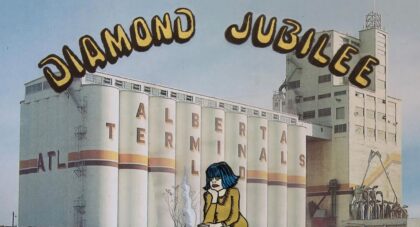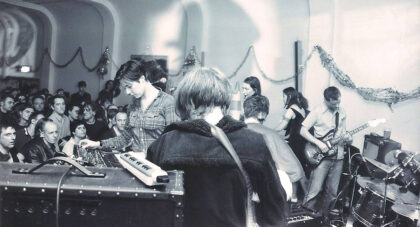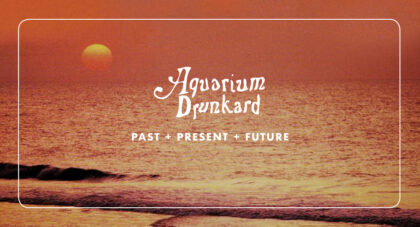It was a cold Christmas night when Inuit songwriter Willie Thrasher first found his musical path. He’d just finished a set with his band the Cordells, drumming at a Christmas dance, performing its normal setlist of Beatles songs and other rock & roll standards, when an old man approached their table after the show.
Thrasher doesn’t remember his name, but he remembers what he said, how he gently prodded him and his young Aboriginal bandmates. “He said, ‘Why don’t you write about your Inuit culture, about your traditional ways? About how you used to live a long time ago, how you used to live off the land?’” Thrasher says. At the time, he didn’t feel a connection to his roots, which had been taken from him as a five-year-old, when he was enrolled in a missionary school in Aklavik, in the Northwest Territories in 1953. At the school, his culture was erased from his mind. He was forbidden from speaking his native language or dance his people’s dances, and as he grew into maturity, his connection to his youth in the bush, whaling, and hunting, drifted from his mind. “I didn’t even know about my culture,” Thrasher said “The missionaries did a good job on me, taking all my culture away.”
That night, the old man told his youthful charges about their people. “So he told us, how we used to build our igloos, hunt caribou, polar bear, seals, Arctic char. The only thing we had to keep us warm was seal oil, and to light our lamps. That’s how my mom and dad’s parents used to live.” The man’s message started Thrasher down a path of reconnection. He began reading about his heritage, “watching videos” about his people’s traditions, speaking with elders. Slowly, he began to piece together history, and his studies informed his songs. The Cordells soon broke up. He decided to quit lugging his drums around and focus on guitar. He asked his bandmates to teach him, but they dismissed his requests. “They said ‘No, you’re going to take the girls away from me.’ [Laughs] They wouldn’t teach me so I learned on my own.”
He moved to Ottawa in 1970, and began writing the songs which would make up his debut album, Spirit Child. Blending traditional melodies with folk rock, it was released by the Canadian Broadcast Company in 1981 and propelled Thrasher’s career playing universities and festivals. He cites his inspirations in those days, Creedence Clearwater Revival, the Rolling Stones, the Moody Blues, Neil Young, Neil Diamond, Buffy Sainte-Marie, and Gordon Lightfoot, some of whom he shared stages with. But the promotion of Spirit Child was short lived, fizzling out after a year and a half. “Spirit Child came out and went really well for awhile then it died out,” Thrasher says.
Only the good shit. Aquarium Drunkard is powered by its patrons. Keep the servers humming and help us continue doing it by pledging your support.
To continue reading, become a member or log in.


